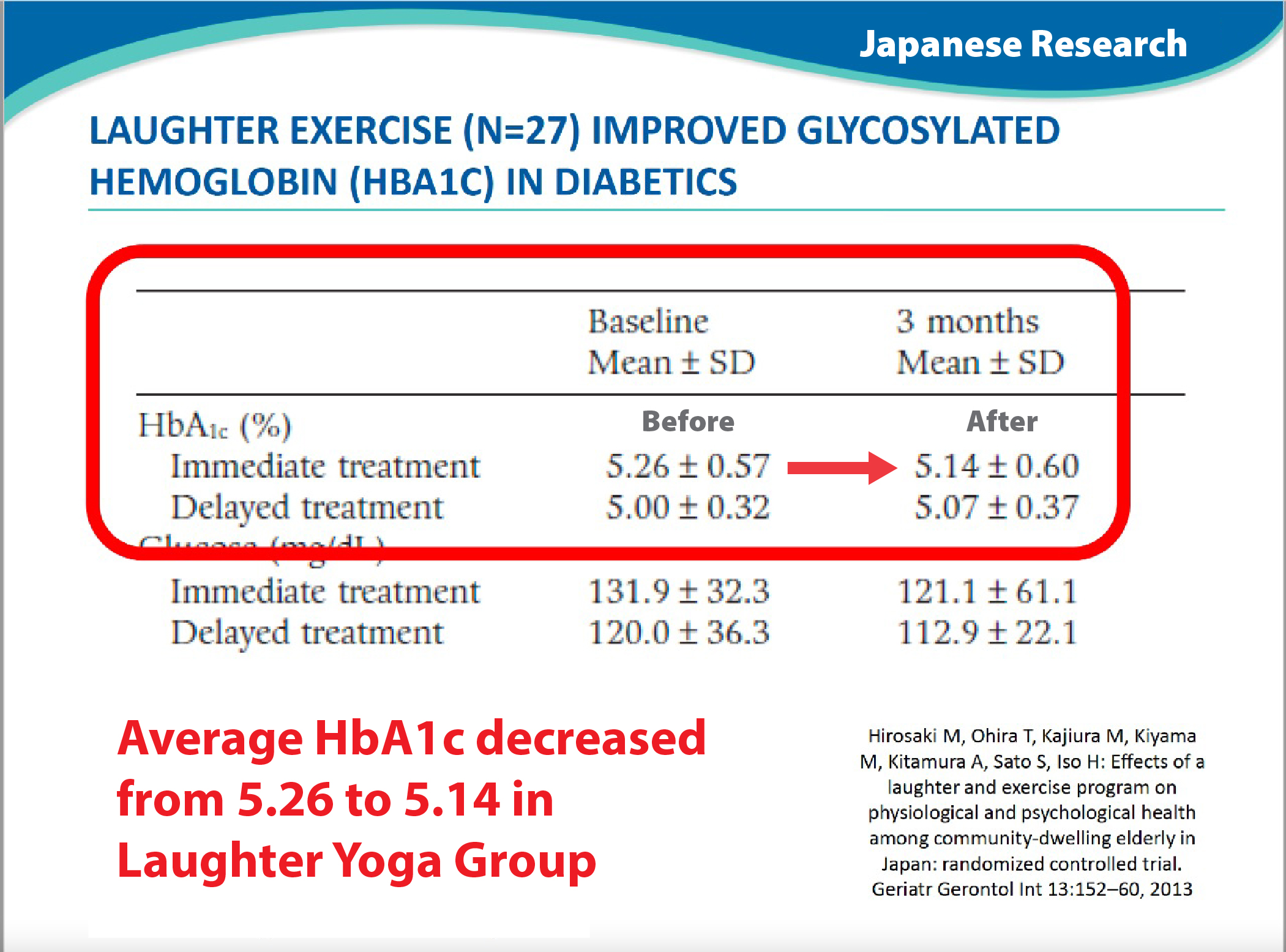
Effects of a laughter and exercise program on physiological and psychological health among community-dwelling elderly in Japan: randomized controlled trial
Mayumi Hirosaki,Tetsuya Ohira,Mitsugu Kajiura,Masahiko Kiyama,Akihiko Kitamura,Shinichi Sato,Hiroyasu Iso
Journal: Geriatrics Gereontology International (First published: 07 June 2012)
Volume13, Issue1 January 2013, Pages 152-160
Link: https://doi.org/10.1111/j.1447-0594.2012.00877.x
Abstract
Aim: To examine the effects of a once-weekly laughter and exercise program on physical and psychological health among elderly people living in the community. As a regular exercise program can be difficult to maintain, we provided a more enjoyable program to enhance adherence to exercise.
Methods: A total of 27 individuals aged 60 years or older, without disabilities, were randomly assigned to either an immediate treatment group or a delayed treatment group. The intervention was a 120-min session consisting of laughter and exercise, carried out once a week for 10 consecutive weeks. Measurements taken at baseline, 3 and 6 months included bodyweight, height, body fat, lean mass, bone mineral density, hemoglobin A1c (HbA(1c)), glucose, high-density lipoprotein and low-density lipoprotein cholesterol, and triglycerides, as well as self-rated health and psychological factors.
Results: All participants completed the 3-month program. Bone mineral density increased significantly in the immediate treatment group compared with the delayed treatment group during the first 3 months. In addition, decreased significantly and self-rated health increased significantly.
Conclusions: The combination of a laughter and exercise program might have physiological and psychological health benefits for the elderly. Laughter might be an effective strategy to motivate the elderly to participate in physical activity.
Highlight of this study
LAUGHTER EXERCISE IMPROVED GLYCOSYLATED HEMOGLOBIN(HBA1C) IN DIABETICS- According to a study conducted at Kyoto University, Japan. They did laughter and exercises for 120 minutes every week for 10 consecutive weeks.There was a significant reduction in glycosylated haemoglobin from 5.26 to 5.14 in laughter group. Also there was increase in bone density


